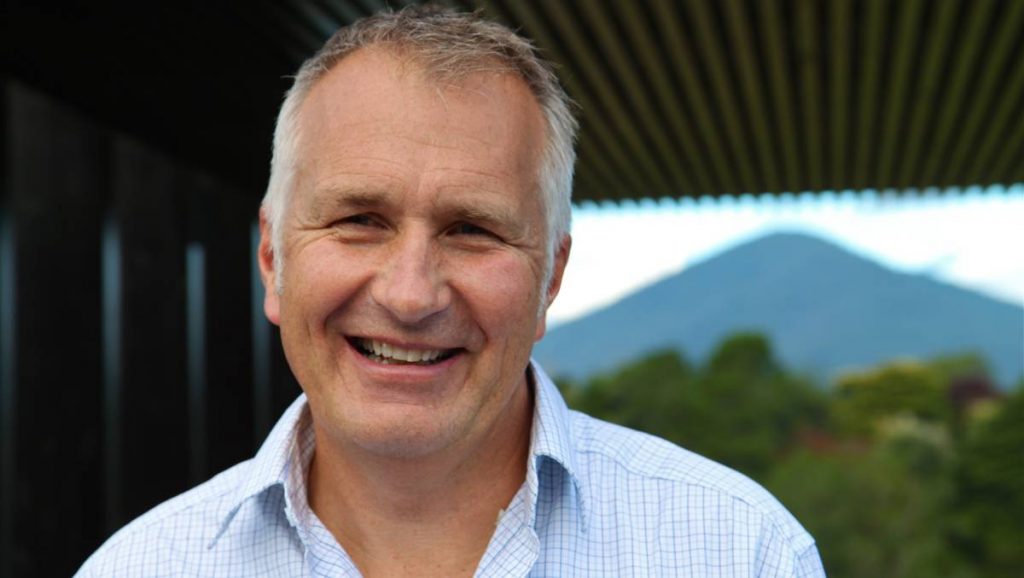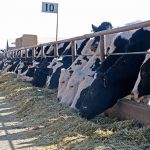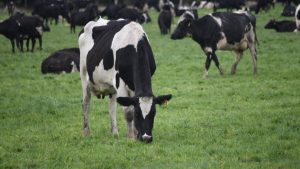
The chair of the Australian Dairy Products Federation (ADPF), Mr Crothers is also the managing director of Gippsland dairy processor, Burra Foods.
A few hours before his Stock & Land interview, Mr Crothers had joined the chairs of other dairy industry bodies to pledge their support for the five “commitments” that form the skeleton of the draft ADP.
Processor promise paid out of farmgate price
Commitment 3 would see the entire supply chain – from farmers through to retailers – fund a doubling of the marketing effort to build consumer trust, promote the value of dairy products and hire ‘ambassadors’.
After saying processors “endlessly invest in the promotion of dairy consumption through their brands”, Mr Crothers said farmers traditionally paid for values-based marketing and would continue to do so, one way or another.
“The ADPF see the value of this commitment, it’s equitable sharing of the load that is the challenge,” Mr Crothers said.
“If you talk to Pauline Hanson, you just have a minimum price or put a big levy on and that turns into a big slush pit.
“Is it coming out of farmgate milk price? Absolutely, it’s coming out of farmgate milk price.
“Processor margins are extraordinarily slim now so it’s difficult to see how it cannot come out of farmgate milk price.
“Is the consumer prepared to pay elevated prices so the industry can fund an image campaign?
“Many would say they are because milk’s so cheap and they will pay an extra 10 cents or 20 cents on liquid milk.
“But what about butter, milk, cheese, yoghurt? What about export milk?
“Am I going to say to a Japanese customer, ‘I’m going to put the price up but, don’t worry, we’re doing a lovely promotion in Australia and everyone’s gonna be happier’ and the New Zealand says ‘I’m not putting my price up’.”
Having fielded a call from an angry processor minutes before the interview, Stock & Land asked whether any ADPF members had agreed to commit funds.
“The ADPF has an executive that represents manufacturing and market milk but not every company’s on the executive,” Mr Crothers said.
“This has been discussed at the executive level; Bruce Kefford from Gardiner came and discussed it at the AGM.
“It wasn’t about voting.
“This is an all-of-chain plan that has got a number of initiatives.
“Some are more aspirational than others.
“There are some structural issues that are really important and commitment number one is one of those.”
Leadership, trust
Commitment 1 was to reform industry bodies and advocacy – something yet to be addressed by the plan – but one which the processors keenly await.
“Leadership’s going to be very important,” Mr Crothers said.
“The clarity, the holistic and independent view of John Brumby is a good thing, a breath of fresh air for the industry.
“I think we’d like to see more of that.
“We’ve got to take it up a level.”
Asked whether he would like to see an independent head of the industry, Mr Crothers said “the processing sector would support that”.
There was no need for the processing sector to change its culture.
“The processing sector has got a wonderful track record of delivering a sustainable milk price and paying promptly and being a reliable marketer,” Mr Crothers said.
At the suggestion the industry had not operated for long without a cooperative to provide a baseline, Mr Crothers asked, “what makes you think the co-op was the baseline?”.
After it was pointed out that Burra Foods itself guaranteed a premium over Murray Goulburn’s milk price for many years, Mr Crothers qualified his remark.
“Yeah, it was a benchmark but I don’t think the industry suffered with the disappearance of that benchmark,” he said.
Mr Crothers was dismissive of concerns about how the market would operate when milk was in sufficient supply.
“Bring it on,” he said.
“Gee, it’s a long way off, isn’t it? It feels like a long way off to me.
“Let’s suggest that that might be our children’s problem.”
Asked then whether he thought the ADP’s extra 1 billion-litre-target was realistic, Mr Crothers said “there is definitely opportunity”.
“It’s really about cost of production and the processing sector has got no influence on cost of production,” he said.
Milk Price Monitor
Commitment 5 of the ADP includes the establishment of a Milk Price Monitor led by processors.
Mr Crothers said the monitor would help deal with the complexity of milk prices.
“The agricultural press want one number so they can have a short headline and sell newspapers and it’s not as simple as that,” he said.
“We’re not pretending it is simple and this is an opportunity for disclosure, reliable primary data – not in the newspaper one week and fish and chips wrapper the next – to provide a deeper understanding of milk price, by region, by season, by fam size.
“The intention is for it to take seasonality into account.
“Flat milk versus seasonal milk has a different price model and some people refuse to understand tor believe that and, as processors, we actually despair at people who chase revenue.
“We want people to chase margin.
“We want dairy farmers to be profitable.”
Mr Crothers also supported the development of a transparent milk trading platform, such as the Australian Milk Price Initiative.
“I think it’s a great idea because it allows discovery,” he said.
“There are a lot of experts about milk price in the industry but there’s only 12 or 15 people who buy milk.”
























